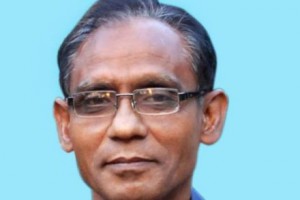Islamic State militants claim responsibility for the hacking to death of a university professor in Bangladesh, accusing him of calling for atheism.
The Islamic State group has claimed responsibility for the hacking to death of a university professor in Bangladesh, accusing him of calling for atheism.
“Islamic State fighters assassinated a university teacher for calling to atheism in the city of Rajshahi in Bangladesh,” the jihadist group said in a statement.
Police said professor Rezaul Karim Siddique was hacked from behind with machetes as he walked to a bus station in the north-western city where he taught English at the city’s public university.
Siddique, 58, was the fourth professor from Rajshahi University to have been murdered.
In February, a court handed down life sentences to two Islamist militants for the murder of another professor, Mohammad Yunus.
Sakhawat Hossain, a fellow English professor from the university and a friend, said the slain teacher played the Tanpura, a musical instrument popular in South Asia, and wrote poems and short stories.
“He used to lead a cultural group called Komol Gandhar and edit a bi-annual literary magazine with the same name,” Mr Hossain said.
“But he never wrote or spoke against religion in public.”
Homegrown Islamist militants have been blamed for a number of murders of secular bloggers and online activists since 2013, the most recent being in the capital Dhaka early this month.
Six secular bloggers and a publisher were brutally killed in 2015, triggering protests and claims that the Government is not doing enough to protect dissident writers and activists.
Police said that in each of the attacks, unidentified assailants hacked the victim to death with machetes or cleavers.
Eight members of banned Islamist group Ansarullah Bangla Team, including a top cleric who is said to have founded the group, were convicted late last year for the murder of atheist blogger Ahmed Rajib Haider in February 2013.
A long-running political crisis in the majority Sunni Muslim but officially secular country has radicalised opponents of the Government and analysts say Islamist extremists pose a growing danger.
afp.org



